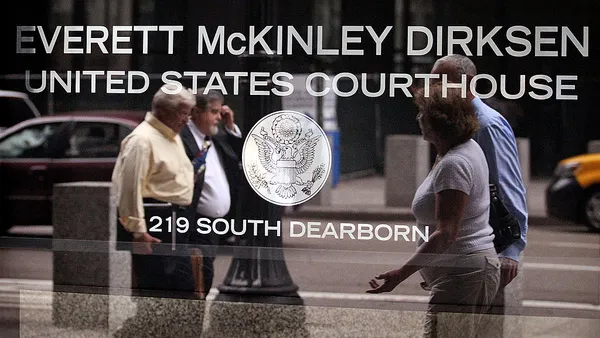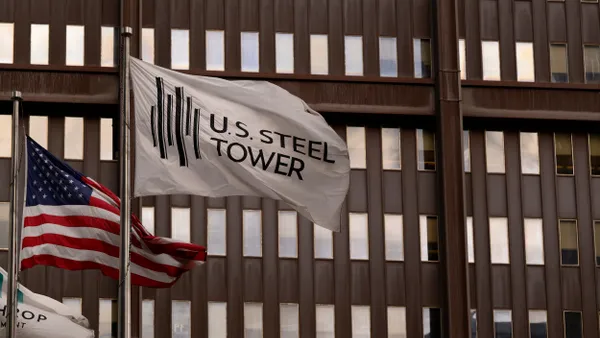UPDATE: Oct. 25, 2019: Waste Connections Inc. has entered into a settlement agreement with a truck driver it fired in 2015, according to court documents. Terms of the settlement were not disclosed.
Dive Brief:
- Waste Connections Inc. (WCI) may have discriminated against a trash truck driver on the basis of the race when it decided to fire him in 2015, the 4th U.S. Court of Appeals ruled last week, reversing summary judgment for the employer (Haynes v. Waste Connections, Inc., No. 17-2431 (4th Cir. Apr. 23, 2019)).
- The employee, Jimmy Haynes, had texted his manager 45 minutes before the beginning of a shift that he was sick, but the manager did not see the text until after Haynes' scheduled shift began. Haynes was then fired from WCI for "job abandonment" and sued, alleging WCI fired him because of his race and retaliated against him, in violation of Title VII of the Civil Rights Act of 1964. A lower court granted summary judgment for WCI, finding that Haynes failed to establish "an appropriate comparator" who received less severe discipline for comparable misconduct. WCI also alleged Haynes was not satisfactorily performing his job at the time of the firing, and that he failed to establish pretext.
- The 4th Circuit reversed, saying the lower court erred when it decided a white WCI employee — who was managed by the same supervisor and who committed more infractions than Haynes, who is black — was an inappropriate comparator. The panel also said Haynes didn't need to demonstrate that he was a "perfect or model employee" to show that his performance was satisfactory. "Rather, a plaintiff must show only that he was qualified for the job and that he was meeting his employer's legitimate expectations," the court said, and Haynes submitted evidence that, prior to a performance review shortly before the firing, his manager had said that "everything looks good" and that Haynes had "nothing to worry about."
Dive Insight:
The ruling is a significant blow for WCI, one of the largest waste industry companies when ranked by number of employees. It also serves as a potential reminder on the importance of specific communication procedures.
Call-in communication procedures in particular can be tricky, especially if managers bend the rules, Eric B. Meyer, partner at Fisher Broyles, wrote in a blog post Monday. According to the court, Haynes showed that he previously communicated with his manager via text, despite WCI's insistence that Haynes' notice violated company policy. Managers who don't consistently follow company call-in procedures may present a legal risk to the organization. The issue may be further complicated by research that shows younger workers, in particular, prefer texting their subordinates.
Documentation also emerged as a discussion point in the court's ruling. Despite job abandonment being cited as the reason for Haynes' firing, his termination paperwork instead stated "violation of rules," according to the court. WCI's own policy defines job abandonment as "three days, no call and no show," which is inconsistent with Haynes' conduct, the court noted.
The discrepancy was dismissed by the lower court, which held Haynes' manager "did not mean the job abandonment policy but was instead apparently referring to his own definition of job abandonment," the 4th Circuit said. Yet, the circuit rebutted this reasoning: "Given that [the manager] had consulted with the human resources department, a genuine dispute of fact exists as to whether it was reasonable [...] to use that specific terminology without conforming to WCI's own definition of 'job abandonment' or whether this represents an inconsistency and evidence of pretext."
Finally, the alleged fact pattern offers some insight on discipline in the workplace. Employers must ensure that discipline is doled out evenly; experts previously told HR Dive that HR can both train managers to adhere to formalized procedures and give disciplinary actions that seem out of place a second look.













